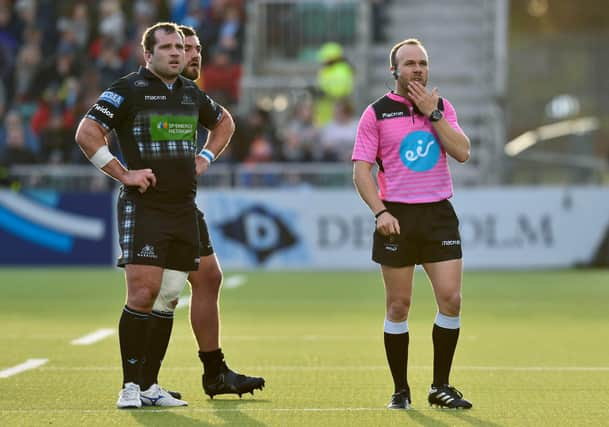Captain’s Challenge experiment led to ‘everyone appealing for everything all the time’, says Fraser Brown


The idea was one of three law variations which were trialled during the tournament last season and the Glasgow Warriors skipper’s initial enthusiasm quickly waned.
Each team was allowed one captain’s challenge per match in which they could question the referee over a try-scoring or foul play incident in the first 75 minutes, or any refereeing decision in the final five minutes.
Advertisement
Hide AdAdvertisement
Hide AdThe challenge was referred to the TMO who reviewed the footage with the match referee making the final decision. If a challenge was successful, then the team kept their challenge but if it was unsuccessful then the team lost the challenge.
It led to more stoppages, with some matches lasting up to two hours, and Brown felt it also undermined the referees’ authority with “everyone appealing for everything all the time”.
“Before it came in I thought it could be a good tool in rugby, but on reflection I thought it was unwarranted,” said the Glasgow co-captain. “It was a pretty poor thing to bring in. It slows the game down and it brought referees and officials into question. It challenged their opinion a bit too much.
“We all know the players make mistakes and we make plenty of them in every game. Referees and officials are no different. If you are searching for the perfect game of rugby from an official point of view you will never find it.
“Part of playing, part of professional sport, is understanding that and taking the rough with the smooth. You're not going to get the rub of the green every single time. You hope that things even out but you have to accept that sometimes that doesn't happen.
“When you slow down every phase of play to question a subjective decision by someone in the middle it makes the game very broken up. We saw that last year. There were games that went on for over two hours.”
A message from the Editor: Thank you for reading this article. We're more reliant on your support than ever as the shift in consumer habits brought about by Coronavirus impacts our advertisers. If you haven't already, please consider supporting our trusted, fact-checked journalism by taking out a digital subscription.
Comments
Want to join the conversation? Please or to comment on this article.
